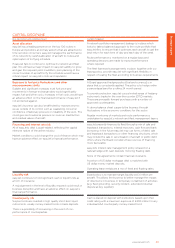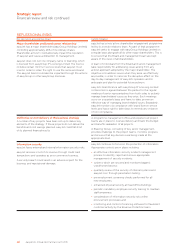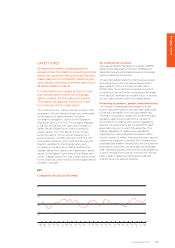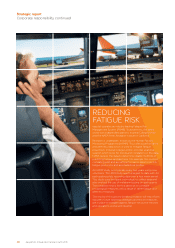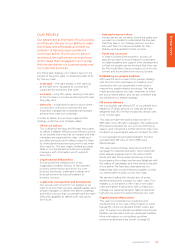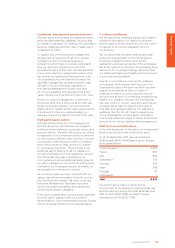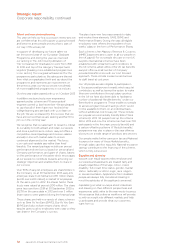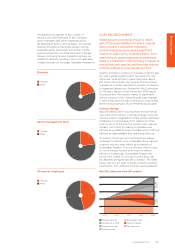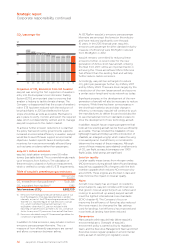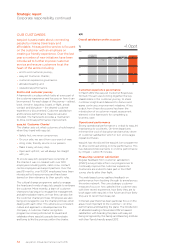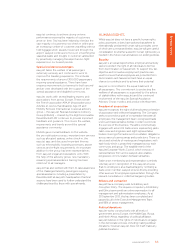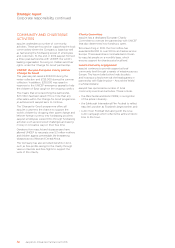EasyJet 2013 Annual Report Download - page 53
Download and view the complete annual report
Please find page 53 of the 2013 EasyJet annual report below. You can navigate through the pages in the report by either clicking on the pages listed below, or by using the keyword search tool below to find specific information within the annual report.
51
www.easyJet.com
Strategic report
A breakdown by gender of the number of
persons who were Directors of the Company,
senior managers and other employees as at
30 September 2013, is set out below. Our gender
diversity throughout the Group remains strong,
especially at the senior level. Out of two current
Executive Directors, our Chief Executive is female.
We are continuing to work towards improving our
workforce diversity including in terms of nationality,
notably through our European Graduate Programme.
Directors
Male
Female
2
8
Senior management team
Male
Female
14
47
All easyJet employees
Male
Female
4807
4138
OUR ENVIRONMENT
Addressing environmental impact is clearly
part of the responsibility of an airline. easyJet
also considers it a business imperative.
Environmental concerns have a significant
impact on public policy towards aviation, from
restrictions on airport expansion to passenger
taxes. It is therefore in the Company’s interest to
ensure that both easyJet and the wider industry
properly address environmental concerns.
Aviation emissions continue to increase. Over the last
ten years global aviation traffic has grown by over
5% a year, while efficiency gains have been about
2%. Unless the industry can reverse this trend there
is a real risk it will be subjected to growth constraints;
a suggestion already put forward by the Committee
on Climate Change in their December 2009 report.
To prevent this, the industry needs to significantly
reduce emissions from flying through step-changes
in technology and the right incentives to ensure that
airlines and passengers fly as efficiently as possible.
Climate change
easyJet believes the most important environmental
issue facing the industry is climate change. As for all
transport sector organisations there remain significant
challenges in moving away from reliance on fossil
fuels. In terms of the short to medium term easyJet
remains committed to making its operations as
efficient as possible through purchasing the most fuel
efficient aircraft available and optimising their use.
To support the longer term technological change
necessary to deliver more sustainable flying, easyJet
supports industry wide efforts as a member of
Sustainable Aviation. This is a UK body that focuses
on cross-industry measures to improve carbon
efficiency in particular. Sustainable Aviation has
shown how overall CO2 emissions reductions can
be delivered alongside growth in aviation. The chart
below sets out the path to lower emissions and the
contribution from different emission saving aspects.
Net CO2 emissions from UK aviation
Demand growth
Operations & ATM
Sustainable fuels
Carbon trading
Imminent aircraft Net emissions
Future aircraft
2040 2050203020202010
1.0
0.5
1.5
2.0
2.5
Fuels
Carbon
trading
Fuel-burn
reduction


